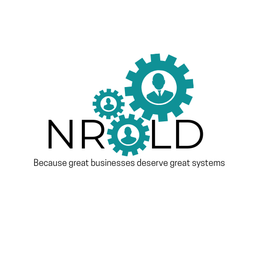How to Prove ‘Expertise’ to Google Without a PhD (E-E-A-T for Solopreneurs)
You built your business from the ground up. But then you hear about Google’s E-E-A-T guidelines, and a wave of panic sets in. E-E-A-T stands for Experience, Expertise, Authoritativeness, and Trustworthiness, and it's Google's way of measuring content quality.
This guide will provide a step-by-step framework to help you, the solopreneur, effectively prove your expertise and build a brand that both Google and your audience will trust. As a solopreneur, your practical experience is your superpower. You don't need a doctorate to be a trusted source. You just need to know how to show Google what you know.
Step 1: Lead with Your Real-World Experience (The First 'E')
This is the most important step. Google recently added "Experience" to its guidelines because it understands the value of firsthand knowledge. Your personal journey, your trial and error, and your practical wisdom are what set you apart.
You need to bake this experience into your content.
- Tell Your Story: Why did you start your blog or business? Share your personal struggles and successes. If you are a debt-free coach, tell the story of how you paid off your own student loans. This is more powerful than any textbook theory.
- Use Original Photos and Videos: Stop using generic stock photos. If you are reviewing a product, show yourself unboxing it and using it. If you are a travel blogger, your content should be full of your own photos, not pictures you found online. This is undeniable proof of your experience.
- Create Case Studies: Show your process. Walk your readers through a project from start to finish. For example, a freelance web designer could write a detailed case study on how they helped a client increase their website speed, showing "before" and "after" results.
- Be the Guinea Pig: Document your own experiments. If you are a gardening expert, test different soil types and show your audience the results. This builds credibility and creates unique, valuable content that only you can produce.
Example: A Health and Fitness Coach
- Low Experience Content: An article listing the "Top 5 Ab Exercises" with stock photos.
- High Experience Content: An article titled "How I Got a Six-Pack After 40: The Exercises and Diet That Actually Worked." It includes the coach's own progress photos, a video of them demonstrating the correct form for each exercise, and a discussion of the challenges they faced along the way.
Step 2: Build Your "E-E-A-T Headquarters" On Your Website
You need a central place on your website that tells Google and your users exactly who you are and why they should trust you.
- Craft a Powerful "About Me" Page: This is not a place to be shy. Your About page should clearly explain your story, your mission, and your experience.
- Include a professional photo of yourself.
- Tell the story of why you are an expert in this field.
- List any achievements, certifications, or results you've gotten for yourself or for clients.
- Link to your social media profiles.
- Write Detailed Author Bios: At the bottom of every blog post, you should have a short author bio. This bio should be tailored to reinforce your expertise on the topic of that article.
- Link your author name to your full "About Me" page.
Example: A Solopreneur Selling Handmade Skincare
- Weak Bio: "By Jane Doe."
- Strong Bio: "By Jane Doe. Jane has spent over 10 years researching and testing natural ingredients for sensitive skin after struggling with her own skin issues for years. She handcrafts every product in small batches from her workshop. [Link to About Page]"
This bio instantly establishes Jane's experience and passion.
Step 3: Get Other People to Vouch for You (Build Authority)
Authoritativeness is about your reputation. It's about what other people in your industry say about you. You can't just declare yourself an authority; you need to earn it.
- Write Guest Posts for Respected Blogs: Find other well-known blogs in your niche and offer to write an article for them. When they publish your post, they are lending you their authority. The author bio on that guest post will link back to your website, sending a powerful signal to Google.
- Be a Guest on Podcasts: Podcasts are an amazing way to share your story and expertise. Being interviewed as an expert on a podcast is a strong social proof signal.
- Collect and Display Testimonials: If you have clients or customers, ask them for testimonials. Display these prominently on your website. Real words from happy customers build massive trust.
- Become a Helpful Voice in Your Community: Participate in relevant Facebook groups, Reddit threads, or other online forums. Answer questions genuinely and help people. Over time, you will build a reputation as a go-to expert.
Step 4: Create Content That Only an Expert Could Create
Your content itself is your ultimate proof of expertise. You need to create articles, videos, and guides that go far deeper than the surface-level content created by amateurs.
- Publish "Ultimate Guides" (Pillar Content): Choose a core topic in your niche and write a massive, comprehensive article that covers everything a person would need to know. This acts as a "pillar" for your website and demonstrates deep knowledge.
- Use Precise Language (But Explain It): Use the correct terminology for your industry. This shows you are a professional. But always make sure you explain these terms simply for your audience. This shows you are a great teacher.
- Share Unique Insights and Opinions: Don't just repeat what everyone else is saying. Based on your experience, what is your unique take on the subject? Do you disagree with the conventional wisdom? A strong, well-supported opinion is a sign of true expertise.
- Update Your Content Regularly: The world changes, and so does your field. A real expert knows this. Go back to your old articles and update them with new information, data, and insights. This shows Google your content is current and reliable.
Action builds business. Start small, start smart—then scale.

This content is AI-assisted and reviewed for accuracy, but errors may occur. Always consult a legal/financial professional before making business decisions. nrold.com is not liable for any actions taken based on this information.


